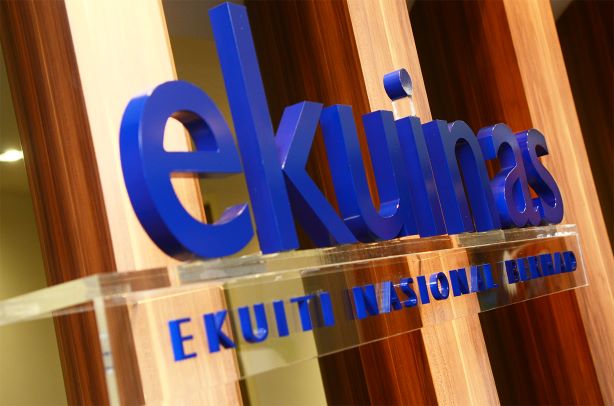In the face of growing regulatory uncertainty in the United States, cryptocurrency founders are increasingly considering geofencing as an “extreme solution” to navigate compliance challenges. Geofencing, which involves blocking users from certain jurisdictions, has become a focal point for many in the crypto industry who are grappling with the evolving regulatory landscape.
On September 30, Jake Chervinsky, the chief legal officer at Variant Fund, shared insights on X regarding the rising interest in geofencing among crypto founders. He explained that this strategy is being viewed as a potential compliance method as U.S. regulators intensify their scrutiny of the cryptocurrency sector.
In essence, geofencing creates a virtual barrier that restricts access to a product or service based on a user’s geographic location. Chervinsky noted that this approach can serve as a fallback compliance strategy for companies that struggle to meet regulatory demands, such as providing disclosures and Know Your Customer (KYC) protocols. By implementing geofencing, companies can block users in jurisdictions with stringent compliance requirements, particularly in the United States.
An Extreme Solution
Chervinsky acknowledged that relying on geofencing is a drastic measure:
“It’s a pretty extreme solution to the problem of regulatory uncertainty — completely abandoning the U.S. market — but sometimes there’s just no other way.”
This sentiment highlights the difficult position many crypto businesses find themselves in as they attempt to comply with complex regulations while also seeking to maintain their user base.
The urgency for geofencing strategies is underscored by data from TRM Labs, which revealed that in 2023, 17 jurisdictions representing 70% of global crypto exposure tightened their regulations. This has prompted various crypto firms to rethink their operational strategies in response to heightened scrutiny.
For instance, the decentralized finance (DeFi) protocol Sky, which rebranded from Maker in August, faced backlash for blocking Virtual Private Network (VPN) access to its Spark Protocol. This move aimed to prevent U.S. users from accessing the protocol but inadvertently restricted access for users in other regions utilizing VPNs.
Similarly, Binance, the world’s largest cryptocurrency exchange, employs geofencing measures by displaying a notice that states “Binance.com is unavailable in your country or region” when users attempt to access the platform from a U.S. IP address. This approach underscores the growing trend of exchanges and protocols taking preemptive steps to comply with U.S. regulations.
Notable Examples of Geofencing in Action
Several cryptocurrency platforms have adopted geofencing measures to mitigate regulatory risks:
- Eigenlayer: This Ethereum restaking protocol blocked users from 30 countries, including the U.S., Canada, China, and Russia, from claiming its airdrop in April.
- Orca: The Solana-based decentralized exchange has restricted U.S. users from trading on its web interface, further illustrating how geofencing is being employed to navigate compliance challenges.
These examples reflect a broader trend within the crypto industry as firms seek to adapt to new regulations while managing their risk exposure.
Best Practices for Geofencing
Chervinsky’s guide on geofencing outlines several best practices that companies can implement to effectively restrict access based on geographic location. These practices include:
- Utilizing available information such as IP addresses and GPS data to identify U.S. users.
- Employing multiple methods for blocking access, including IP blocking, user attestations, and monitoring VPN usage.
- Considering infrastructure outside the United States, minimizing the use of American-based hardware and personnel.
- Utilizing non-U.S. servers and cloud services to facilitate compliance.
While adopting a geofencing strategy can present challenges, it also offers some potential advantages. GeoComply, a compliance solutions provider, noted in a September blog post that tailored geofences using advanced geolocation data can help crypto firms expand into new markets while ensuring compliance with local laws.
However, Chervinsky cautioned that geofencing comes with its own set of drawbacks:
“Geofencing is an extreme and costly measure to ensure compliance with U.S. law.”
This reality highlights the need for companies to weigh the benefits of geofencing against the associated costs and operational challenges.
As regulatory pressures mount in the United States, geofencing is emerging as a consideration for cryptocurrency founders seeking to navigate compliance challenges. While it represents an extreme measure to limit market access, it also reflects the broader struggles within the industry to adapt to a changing regulatory landscape.
The ability to effectively implement geofencing strategies may be critical for crypto firms looking to operate legally while safeguarding their interests. As the landscape evolves, it will be important for stakeholders to remain vigilant and responsive to regulatory developments that could impact their operations.
| Aspect | Details |
|---|---|
| Strategy | Geofencing to block users in specific jurisdictions |
| Key Figure | Jake Chervinsky, Chief Legal Officer at Variant Fund |
| Major Companies Implementing | Sky, Binance, Eigenlayer, Orca |
| Regulatory Environment | 17 jurisdictions tightened regulations in 2023 |
| Potential Advantages | Ability to expand into new markets while maintaining compliance |
| Drawbacks | Considered extreme and costly for ensuring compliance |
As the cryptocurrency industry continues to grapple with regulatory challenges, the exploration of geofencing reflects the complexities of maintaining operations in a rapidly changing environment.













